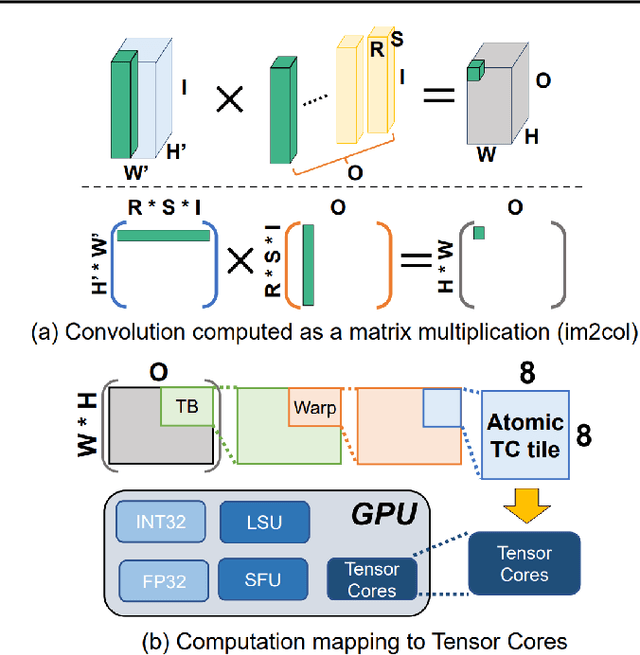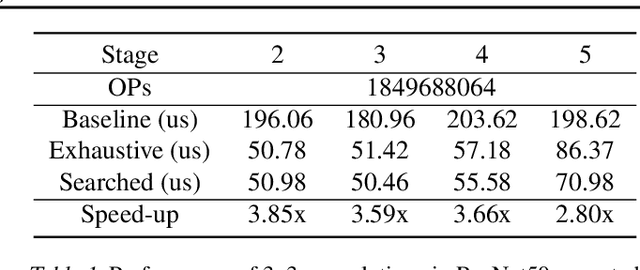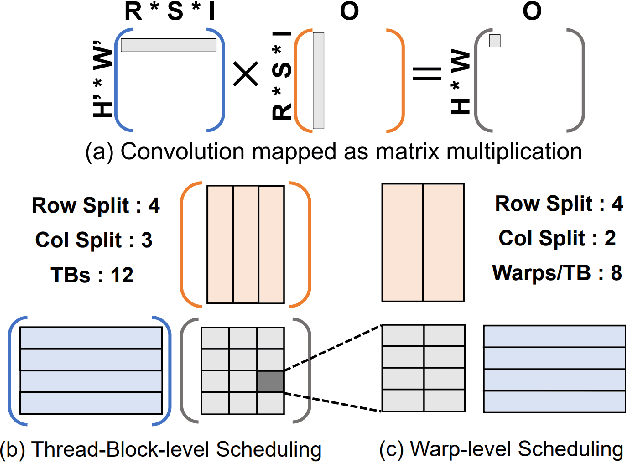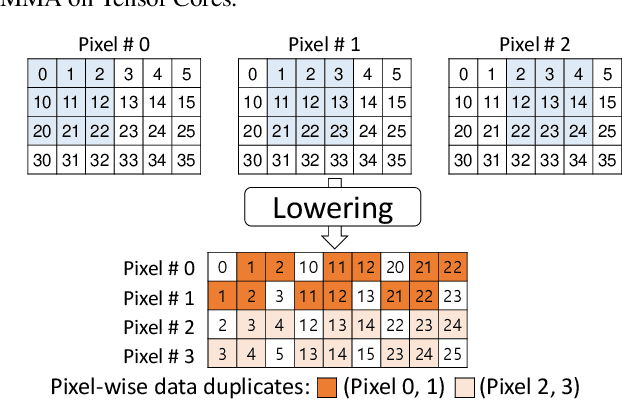Hyucksung Kwon
LoL-PIM: Long-Context LLM Decoding with Scalable DRAM-PIM System
Dec 28, 2024



Abstract:The expansion of large language models (LLMs) with hundreds of billions of parameters presents significant challenges to computational resources, particularly data movement and memory bandwidth. Long-context LLMs, which process sequences of tens of thousands of tokens, further increase the demand on the memory system as the complexity in attention layers and key-value cache sizes is proportional to the context length. Processing-in-Memory (PIM) maximizes memory bandwidth by moving compute to the data and can address the memory bandwidth challenges; however, PIM is not necessarily scalable to accelerate long-context LLM because of limited per-module memory capacity and the inflexibility of fixed-functional unit PIM architecture and static memory management. In this work, we propose LoL-PIM which is a multi-node PIM architecture that accelerates long context LLM through hardware-software co-design. In particular, we propose how pipeline parallelism can be exploited across a multi-PIM module while a direct PIM access (DPA) controller (or DMA for PIM) is proposed that enables dynamic PIM memory management and results in efficient PIM utilization across a diverse range of context length. We developed an MLIR-based compiler for LoL-PIM extending a commercial PIM-based compiler where the software modifications were implemented and evaluated, while the hardware changes were modeled in the simulator. Our evaluations demonstrate that LoL-PIM significantly improves throughput and reduces latency for long-context LLM inference, outperforming both multi-GPU and GPU-PIM systems (up to 8.54x and 16.0x speedup, respectively), thereby enabling more efficient deployment of LLMs in real-world applications.
Learning from distinctive candidates to optimize reduced-precision convolution program on tensor cores
Feb 24, 2022



Abstract:Convolution is one of the fundamental operations of deep neural networks with demanding matrix computation. In a graphic processing unit (GPU), Tensor Core is a specialized matrix processing hardware equipped with reduced-precision matrix-multiply-accumulate (MMA) instructions to increase throughput. However, it is challenging to achieve optimal performance since the best scheduling of MMA instructions varies for different convolution sizes. In particular, reduced-precision MMA requires many elements grouped as a matrix operand, seriously limiting data reuse and imposing packing and layout overhead on the schedule. This work proposes an automatic scheduling method of reduced-precision MMA for convolution operation. In this method, we devise a search space that explores the thread tile and warp sizes to increase the data reuse despite a large matrix operand of reduced-precision MMA. The search space also includes options of register-level packing and layout optimization to lesson overhead of handling reduced-precision data. Finally, we propose a search algorithm to find the best schedule by learning from the distinctive candidates. This reduced-precision MMA optimization method is evaluated on convolution operations of popular neural networks to demonstrate substantial speedup on Tensor Core compared to the state of the arts with shortened search time.
 Add to Chrome
Add to Chrome Add to Firefox
Add to Firefox Add to Edge
Add to Edge